- Home
- Anthony Trollope
Phineas Redux Page 6
Phineas Redux Read online
Page 6
CHAPTER IV.
TANKERVILLE.
The great Mr. Molescroft himself came over to Tankerville for thepurpose of introducing our hero to the electors and to Mr. Ruddles,the local Liberal agent, who was to be employed. They met at theLambton Arms, and there Phineas established himself, knowing wellthat he had before him ten days of unmitigated vexation and misery.Tankerville was a dirty, prosperous, ungainly town, which seemed toexude coal-dust or coal-mud at every pore. It was so well recognisedas being dirty that people did not expect to meet each other withclean hands and faces. Linen was never white at Tankerville, andeven ladies who sat in drawing-rooms were accustomed to the feel andtaste and appearance of soot in all their daintiest recesses. We hearthat at Oil City the flavour of petroleum is hardly considered to bedisagreeable, and so it was with the flavour of coal at Tankerville.And we know that at Oil City the flavour of petroleum must not beopenly declared to be objectionable, and so it was with coal atTankerville. At Tankerville coal was much loved, and was not thoughtto be dirty. Mr. Ruddles was very much begrimed himself, and someof the leading Liberal electors, upon whom Phineas Finn had alreadycalled, seemed to be saturated with the product of the district. Itwould not, however, in any event be his duty to live at Tankerville,and he had believed from the first moment of his entrance into thetown that he would soon depart from it, and know it no more. He feltthat the chance of his being elected was quite a forlorn hope, andcould hardly understand why he had allowed himself to be embarrassedby so very unprofitable a speculation.
Phineas Finn had thrice before this been chosen to sit inParliament--twice for the Irish borough of Loughshane, and once forthe English borough of Loughton; but he had been so happy as hithertoto have known nothing of the miseries and occasional hopelessness ofa contested election. At Loughton he had come forward as the nomineeof the Earl of Brentford, and had been returned without any chance offailure by that nobleman's influence. At Loughshane things had nearlybeen as pleasant with him. He had almost been taught to think thatnothing could be easier than getting into Parliament if only a mancould live when he was there. But Loughton and Loughshane were gone,with so many other comfortable things of old days, and now he foundhimself relegated to a borough to which, as it seemed to him, he wassent to fight, not that he might win, but because it was necessaryto his party that the seat should not be allowed to be lost withoutfighting. He had had the pleasant things of parliamentary adventure,and now must undergo those which were unpleasant. No doubt he couldhave refused, but he had listened to the tempter, and could not nowgo back, though Mr. Ruddles was hardly more encouraging than Mr.Molescroft.
"Browborough has been at work for the last three days," said Mr.Ruddles, in a tone of reproach. Mr. Ruddles had always thought thatno amount of work could be too heavy for his candidates.
"Will that make much difference?" asked Mr. Molescroft.
"Well, it does. Of course, he has been among the colliers,--when weought to have been before him."
"I came when I was told," said Phineas.
"I'd have telegraphed to you if I'd known where you were. But there'sno help for spilt milk. We must get to work now,--that's all. Isuppose you're for disestablishing the Church?"
"Not particularly," said Phineas, who felt that with him, as a RomanCatholic, this was a delicate subject.
"We needn't go into that, need we?" said Mr. Molescroft, who, thougha Liberal, was a good Churchman.
Mr. Ruddles was a Dissenter, but the very strong opinion which Mr.Ruddles now expressed as to the necessity that the new candidateshould take up the Church question did not spring at all from his ownreligious convictions. His present duty called upon him to have aLiberal candidate if possible returned for the borough with which hewas connected, and not to disseminate the doctrines of his own sect.Nevertheless, his opinion was very strong. "I think we must, Mr.Molescroft," said he; "I'm sure we must. Browborough has taken upthe other side. He went to church last Sunday with the Mayor and twoof the Aldermen, and I'm told he said all the responses louder thananybody else. He dined with the Vicar of Trinity on Monday. He hasbeen very loud in denouncing Mr. Finn as a Roman Catholic, and hasdeclared that everything will be up with the State if Tankervillereturns a friend and supporter of the Pope. You'll find that theChurch will be the cry here this election. You can't get anything bysupporting it, but you may make a strong party by pledging yourselfto disendowment."
"Wouldn't local taxation do?" asked Mr. Molescroft, who indeedpreferred almost any other reform to disendowment.
"I have made up my mind that we must have some check on municipalexpenditure," said Phineas.
"It won't do--not alone. If I understand the borough, the feeling atthis election will altogether be about the Church. You see, Mr. Finn,your being a Roman Catholic gives them a handle, and they're alreadybeginning to use it. They don't like Roman Catholics here; but ifyou can manage to give it a sort of Liberal turn,--as many of yourconstituents used to do, you know,--as though you disliked Church andState rather than cared for the Pope, may be it might act on our siderather than on theirs. Mr. Molescroft understands it all."
"Oh, yes; I understand."
Mr. Ruddles said a great deal more to the same effect, and though Mr.Molescroft did not express any acquiescence in these views, neitherdid he dissent. The candidate said but little at this interview, butturned the matter over in his mind. A seat in Parliament would bebut a barren honour, and he could not afford to offer his servicesfor barren honour. Honest political work he was anxious to do, butfor what work he did he desired to be paid. The party to which hebelonged had, as he knew, endeavoured to avoid the subject of thedisendowment of the Church of England. It is the necessary natureof a political party in this country to avoid, as long as it can beavoided, the consideration of any question which involves a greatchange. There is a consciousness on the minds of leading politiciansthat the pressure from behind, forcing upon them great measures,drives them almost quicker than they can go, so that it becomes anecessity with them to resist rather than to aid the pressure whichwill certainly be at last effective by its own strength. The bestcarriage horses are those which can most steadily hold back againstthe coach as it trundles down the hill. All this Phineas knew, andwas of opinion that the Barrington Erles and Ratlers of his partywould not thank him for ventilating a measure which, however certainmight be its coming, might well be postponed for a few years. Oncealready in his career he had chosen to be in advance of his party,and the consequences had been disastrous to him. On that occasion hisfeelings had been strong in regard to the measure upon which he brokeaway from his party; but, when he first thought of it, he did notcare much about Church disendowment.
But he found that he must needs go as he was driven or else departout of the place. He wrote a line to his friend Erle, not to askadvice, but to explain the circumstances. "My only possible chanceof success will lie in attacking the Church endowments. Of course Ithink they are bad, and of course I think that they must go. But Ihave never cared for the matter, and would have been very willing toleave it among those things which will arrange themselves. But I haveno choice here." And so he prepared himself to run his race on thecourse arranged for him by Mr. Ruddles. Mr. Molescroft, whose hourswere precious, soon took his leave, and Phineas Finn was placardedabout the town as the sworn foe to all Church endowments.
In the course of his canvass, and the commotions consequent uponit, he found that Mr. Ruddles was right. No other subject seemed atthe moment to have any attraction in Tankerville. Mr. Browborough,whose life had not been passed in any strict obedience to the TenCommandments, and whose religious observances had not hithertointerfered with either the pleasures or the duties of his life,repeated at every meeting which he attended, and almost to everyelector whom he canvassed, the great Shibboleth which he had nowadopted--"The prosperity of England depends on the Church of herpeople." He was not an orator. Indeed, it might be hard to find aman, who had for years been conversant with public life, less ableto string a few words to
gether for immediate use. Nor could he learnhalf-a-dozen sentences by rote. But he could stand up with unabashedbrow and repeat with enduring audacity the same words a dozen timesover--"The prosperity of England depends on the Church of herpeople." Had he been asked whether the prosperity which he promisedwas temporal or spiritual in its nature, not only could he not haveanswered, but he would not in the least have understood the question.But the words as they came from his mouth had a weight which seemedto ensure their truth, and many men in Tankerville thought that Mr.Browborough was eloquent.
Phineas, on the other hand, made two or three great speeches everyevening, and astonished even Mr. Ruddles by his oratory. He hadaccepted Mr. Ruddles's proposition with but lukewarm acquiescence,but in the handling of the matter he became zealous, fiery,and enthusiastic. He explained to his hearers with graciousacknowledgment that Church endowments had undoubtedly been mostbeneficent in past times. He spoke in the interests of no specialcreed. Whether in the so-called Popish days of Henry VIII and hisancestors, or in the so-called Protestant days that had followed,the state of society had required that spiritual teaching should besupplied from funds fixed and devoted to the purpose. The increasingintelligence and population of the country made this no longerdesirable,--or, if desirable, no longer possible. Could theseendowments be increased to meet the needs of the increasing millions?Was it not the fact that even among members of the Church of Englandthey were altogether inefficient to supply the wants of our greattowns? Did the people of Tankerville believe that the clergymen ofLondon, of Liverpool, and of Manchester were paid by endowments? Thearguments which had been efficacious in Ireland must be efficaciousin England. He said this without reference to one creed or toanother. He did believe in religious teaching. He had not a word tosay against a Protestant Episcopal Church. But he thought, nay hewas sure, that Church and State, as combined institutions, could nolonger prevail in this country. If the people of Tankerville wouldreturn him to Parliament it should be his first object to put an endto this anomaly.
The Browboroughites were considerably astonished by his success. Thecolliers on this occasion did not seem to regard the clamour thatwas raised against Irish Papists. Much dirt was thrown and someheads were broken; but Phineas persevered. Mr. Ruddles was lost inadmiration. They had never before had at Tankerville a man who couldtalk so well. Mr. Browborough without ceasing repeated his well-wornassurance, and it was received with the loudest exclamations ofdelight by his own party. The clergymen of the town and neighbourhoodcrowded round him and pursued him, and almost seemed to believe inhim. They were at any rate fighting their battle as best they knewhow to fight it. But the great body of the colliers listened toPhineas, and every collier was now a voter. Then Mr. Ruddles, whohad many eyes, began to perceive that the old game was to be played."There'll be money going to-morrow after all," he whispered to Finnthe evening before the election.
"I suppose you expected that."
"I wasn't sure. They began by thinking they could do without it. Theydon't want to sacrifice the borough."
"Nor do I, Mr. Ruddles."
"But they'll sooner do that than lose the seat. A couple of dozen ofmen out of the Fallgate would make us safe." Mr. Ruddles smiled as hesaid this.
And Phineas smiled as he answered, "If any good can be done bytalking to the men at the Fallgate, I'll talk to them by the hourtogether."
"We've about done all that," said Mr. Ruddles.
Then came the voting. Up to two o'clock the polling was so equal thatthe numbers at Mr. Browborough's committee room were always given inhis favour, and those at the Liberal room in favour of Phineas Finn.At three o'clock Phineas was acknowledged to be ten ahead. He himselfwas surprised at his own success, and declared to himself that hisold luck had not deserted him.
"They're giving L2 10_s._ a vote at the Fallgate this minute," saidRuddles to him at a quarter-past three.
"We shall have to prove it."
"We can do that, I think," said Ruddles.
At four o'clock, when the poll was over, Browborough was declaredto have won on the post by seven votes. He was that same eveningdeclared by the Mayor to have been elected sitting member for theborough, and he again assured the people in his speech that theprosperity of England depends on the Church of her people.
"We shall carry the seat on a scrutiny as sure as eggs," said Mr.Ruddles, who had been quite won by the gallant way in which Phineashad fought his battle.

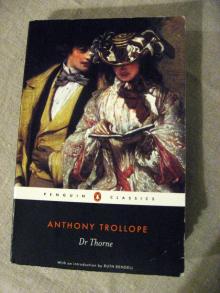 Doctor Thorne
Doctor Thorne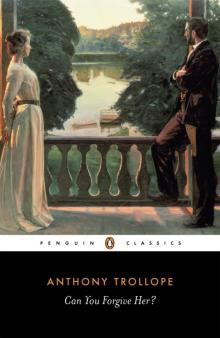 Can You Forgive Her?
Can You Forgive Her?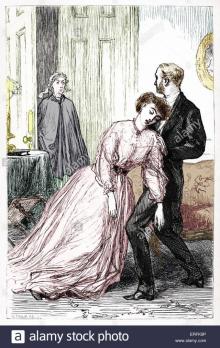 The Last Chronicle of Barset
The Last Chronicle of Barset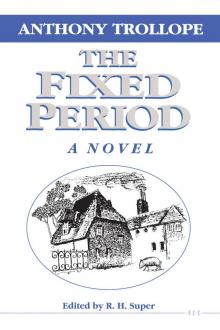 The Fixed Period
The Fixed Period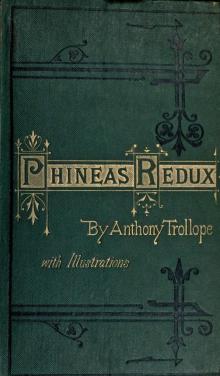 Phineas Redux
Phineas Redux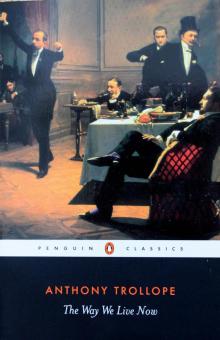 The Way We Live Now
The Way We Live Now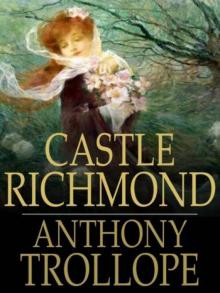 Castle Richmond
Castle Richmond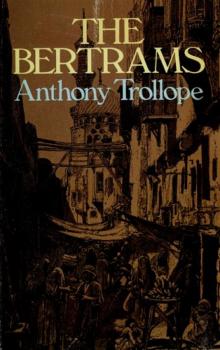 The Bertrams
The Bertrams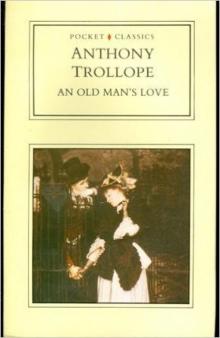 An Old Man's Love
An Old Man's Love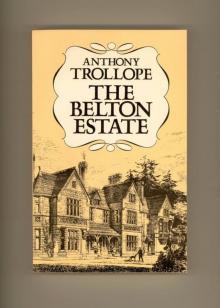 The Belton Estate
The Belton Estate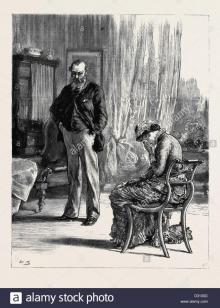 Marion Fay: A Novel
Marion Fay: A Novel The Claverings
The Claverings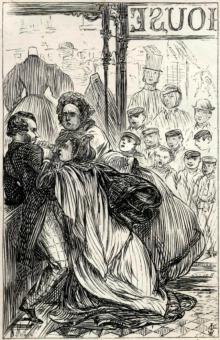 The Struggles of Brown, Jones, and Robinson
The Struggles of Brown, Jones, and Robinson Nina Balatka
Nina Balatka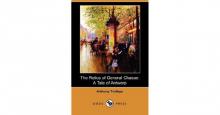 The Relics of General Chasse: A Tale of Antwerp
The Relics of General Chasse: A Tale of Antwerp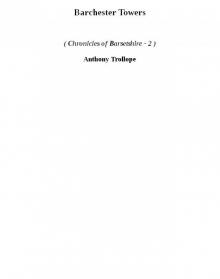 Barchester Towers cob-2
Barchester Towers cob-2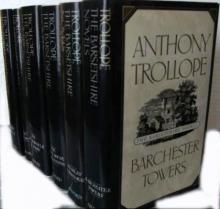 The Chronicles of Barsetshire
The Chronicles of Barsetshire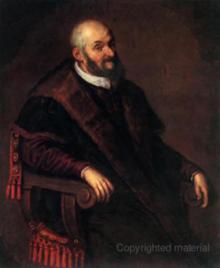 The Warden cob-1
The Warden cob-1 Framley Parsonage
Framley Parsonage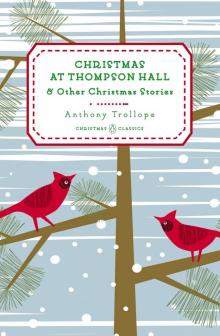 Christmas at Thompson Hall
Christmas at Thompson Hall The Warden
The Warden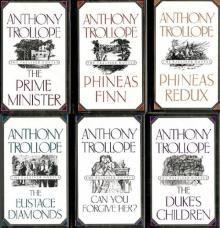 The Palliser Novels
The Palliser Novels The Small House at Allington
The Small House at Allington Barchester Towers
Barchester Towers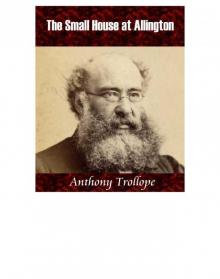 The Small House at Allington cob-5
The Small House at Allington cob-5 The Duke's Children
The Duke's Children Phineas Finn, the Irish Member
Phineas Finn, the Irish Member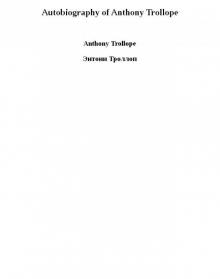 Autobiography of Anthony Trollope
Autobiography of Anthony Trollope